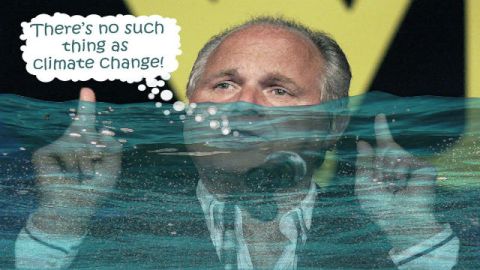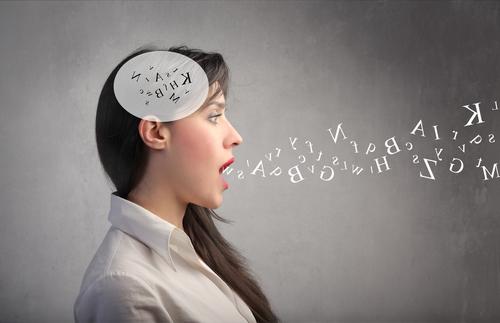The Ethics of Climate Change Denial

Here is a version of The Trolley Problem, a classic experiment in ethics. Let’s say you are next to some train tracks, and down the tracks and behind a hill you see smoke and hear the rumblings of what sounds like a train headed your way. You also see five people on the tracks who will be killed if it is a train. They are unaware of the danger, and too far away to hear or see you. To save them, before you know for sure it’s a train, you can throw a switch which will divert the train to another track, where a single person is standing. What’s the ethical thing to do?
Now let’s add a twist. Let’s say you’re standing near the tracks with a friend, and she is sure a train is coming and wants to throw the switch. But your deeply held religious faith says you are not supposed to interfere with what God has preordained. So you argue with your friend that, despite the smoke and noise, she can’t be sure it’s a train and she shouldn’t do anything. Still, she goes to throw the switch, and you try to stop her, even though if it is a train, five people will die! Is that ethical?
Now let’s make this hypothetical real, and substitute climate change for the train. One of the most extensive multi-disciplinary research efforts in human history has determined that the climate is changing in ways that will cause massive disruption of the biological systems on which all life depends. The likelihood is that this will cause massive suffering and death, but the science isn’t absolutely certain. Friends see that evidence and want to act. But your deep beliefs lead you to see the evidence through different lenses, so you both deny the evidence and you try to keep your friends from acting. Is that denial of climate change ethical? Like most such dilemmas, it’s not as black and white as it seems.
There are two populations of climate change deniers. Most, though they wield the weapons of fact in what sounds like an intellectual battle, are actually fighting a much more profoundly emotional war. As we all do with many issues, climate change deniers are interpreting the evidence so their view will agree with the group they identify with most strongly. That strengthens their group’s dominance in society, and enhances the group‘s acceptance of them as members in good standing, both of which are vital for survival for social animals like us who depend on the tribe for our well being. This powerful tendency to interpret the facts so our views agree with our group, known as Cultural Cognition, happens below consciousness, below purposeful choice, and beyond what most would call free will.
So, like the true believer near the train tracks whose beliefs caused him to honestly see things in a different way, this sort of climate change denial is the product of powerful subconscious motivations. It is an honest result of the innate way human cognition works. Though I disagree with climate change deniers, and I am frustrated by their stubborn rejection of overwhelming evidence, this version of denialism does not seem unethical. To blame behavior as unethical requires belief that we have conscious control of our choices and actions, and the social science evidence is pretty persuasive that a lot of our ‘thinking’ happens beyond our conscious awareness, or our ability to control it.
But now let’s add another twist to the Trolley Problem. Let’s say you’re standing by the tracks because you’re waiting for a train to deliver merchandise that will earn you hundreds of millions of dollars, but only if it arrives on time. You lose hundreds of millions if the train is late. Throwing the switch might save those five people (and kill the one) but it will delay the train and cost you a TON of money. Is it ethical to try and keep your friend from throwing the switch now?
Of course not. This is selfish and immoral by any reasonable standard. Yet this is precisely the nature of the climate denial by a small group of people who have, for personal and economic reasons, consciously created doubt about climate change, lobbying and campaigning against efforts to reduce the risk or even just to adapt to its effects. These deniers are different. Their actions are a matter of will, conscious and controlled, and their motives are personal wellbeing at the expense of others, at the expense in fact of nothing less than the health of the biosphere of the planet. This staggeringly selfish behavior embodies the purest example of what any fair minded person would call unethical. Evil, even.
There really are two different climate change denier communities; one whose denialism arises honestly from the subconscious human need we all have for social cohesion, and one that comes out of selfishness and greed. Those of us who want action on climate change must work with the first group with respect. But we should treat the others like the enemy of the common good they have declared themselves to be.




